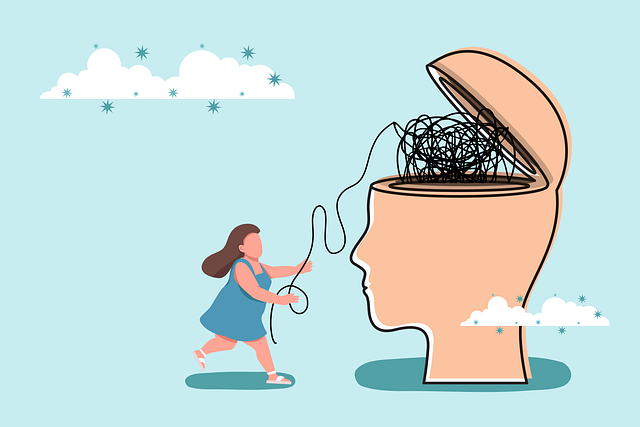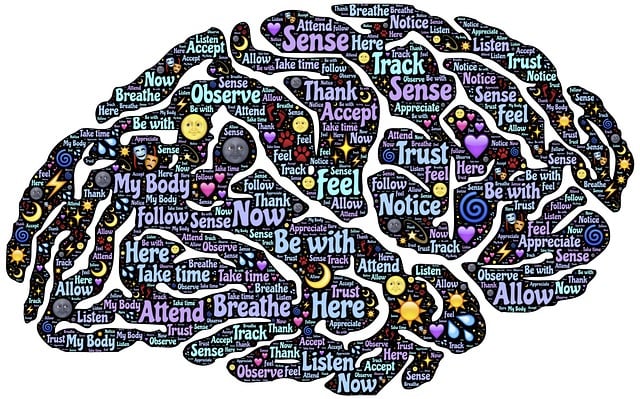Mental health challenges are widespread and can significantly impact daily life. Organizations like Westminster Suicide Prevention Therapy emphasize the urgency of addressing these issues, highlighting their potential to cause productivity loss, relationship strain, physical health problems, and exacerbate existing conditions. Apps play a crucial role in providing accessible, personalized care through therapy, support systems, and Mental Health Education Programs, incorporating techniques like mindfulness exercises and cultural sensitivity. When designing suicide prevention apps, immediate crisis support and tailored long-term coping strategies are essential, along with user privacy, safety, and accessibility features. These elements ensure effective service delivery to diverse users, including underrepresented communities.
In today’s digital age, mental wellness apps offer crucial support for those grappling with challenges like anxiety, depression, and suicidal ideation. This article explores key aspects of developing effective mental health solutions, focusing on suicide prevention. We delve into understanding the nuances of mental health issues, designing evidence-based features for Westminster Suicide Prevention Therapy, and ensuring privacy, safety, and accessibility in app creation. By considering these aspects, we can foster a digital landscape that enhances well-being and saves lives.
- Understanding Mental Health Challenges and Their Impact
- Designing Effective Features for a Suicide Prevention App
- Ensuring Privacy, Safety, and Accessibility in App Development
Understanding Mental Health Challenges and Their Impact

Mental health challenges are widespread, impacting individuals across all demographics and life stages. From anxiety and depression to more severe conditions like bipolar disorder or schizophrenia, these issues can significantly impair daily functioning, relationships, and overall quality of life. In the UK, organizations such as Westminster Suicide Prevention highlight the urgency of addressing mental wellness, emphasizing the profound impact of untreated or inadequately treated mental health conditions.
The consequences of ignored mental health challenges are far-reaching. They can lead to decreased productivity at work or school, strained interpersonal relationships, and even physical health issues. Additionally, unaddressed mental health problems can exacerbate existing conditions, making it crucial to integrate effective therapy and support systems into daily life. This is where the design and development of mental wellness apps play a pivotal role in promoting accessible and personalized care, including strategies like conflict resolution techniques and compassion cultivation practices, as well as comprehensive Mental Health Education Programs.
Designing Effective Features for a Suicide Prevention App

In designing features for a suicide prevention app, it’s crucial to create tools that offer immediate support and long-term coping strategies tailored to individual needs. Incorporating Anxiety Relief techniques within the app can include mindfulness exercises, breathing patterns, and progressive muscle relaxation guided by AI-driven personalizers. These should be accessible with just a tap, ensuring users can quickly access them during crises.
Moreover, cultural sensitivity is paramount in mental healthcare. The app should allow users to input their preferred language and cultural context, enabling personalized resources that resonate with their experiences. For example, incorporating Mental Wellness Journaling Exercise Guidance tailored to diverse cultures can foster reflection and self-care practices aligned with personal beliefs. This level of customization not only enhances engagement but also ensures the app effectively serves a diverse user base, including those from underrepresented communities in Westminster Suicide Prevention Therapy.
Ensuring Privacy, Safety, and Accessibility in App Development

When developing mental wellness apps, prioritizing user privacy, safety, and accessibility is paramount to fostering a supportive digital environment. These apps often deal with sensitive personal information, including details about mental health struggles, treatment plans, and emotions. Therefore, robust data encryption methods, secure storage solutions, and transparent privacy policies are essential components of app design. Users should be given control over their data, understanding how and when it’s shared, aligning with principles recommended by Westminster Suicide Prevention Therapy.
Furthermore, integrating risk management planning for mental health professionals into the app’s framework ensures a safe space for users. This includes features that allow for immediate crisis intervention resources, such as emergency contacts and hotlines, and tools for self-monitoring and stress management. By incorporating these aspects, along with accessible design considerations like intuitive interfaces and support for various accessibility needs, mental wellness apps can effectively cater to a diverse user base, enhancing their overall effectiveness as outlined in Mental Health Education Programs Design.
In developing mental wellness apps, such as those focused on suicide prevention like Westminster Suicide Prevention Therapy, it’s crucial to balance innovative features with robust privacy, safety, and accessibility. By understanding the profound impact of mental health challenges and designing effective tools, we can create resources that foster healing and support users’ well-being. Ensuring these apps are easily accessible and safe guards user data is essential for promoting positive mental health outcomes in our digital age.














